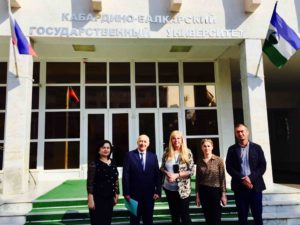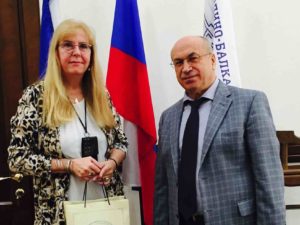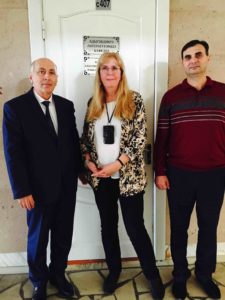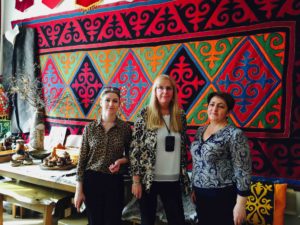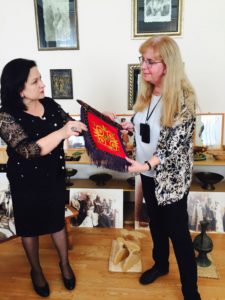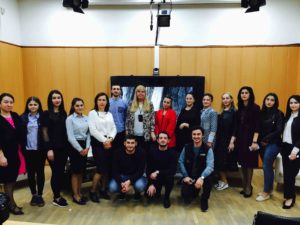Invitation to take part in ”Young Russia Experts”:
Second International Student Conference, 22-23 November 2018
Time: 22-23 November
Place: ToRS, University of Copenhagen, Karen Blixen plads 10, Copenhagen
We are glad to invite you to the Third International Student Conference, which will take place on 22-23 November at the Department of Cross-Cultural and Area Studies, University of Copenhagen. The conference will bring together future Russia experts and professors from four universities: University of Copenhagen, Århus University, Lund University and the University of Malmö. This event is the continuation of the First Student Conference in Århus in November 2017, which was the result of successful collaboration between the universities of Copenhagen and Århus. In this year, on top of the collaboration between these two Danish universities, we are inviting Russia students from the Swedish side as well.
The purpose of this event is to introduce you to each other, to enhance your future professional networking, and to give you the possibility to receive feedback for your ongoing research/study projects from both your peers and your teachers. This is, however, a conference of students and for students, and we will only arrange and structure the event.
Presentations can be made in two forms. First, it can be an oral paper of 10-15 minutes with or without a PowerPoint, followed by 5-10 minutes of questions and answers. Second, it can be a ‘poster presentation’, that is an A3 format poster, on which you lay out and visualize your research problem and main results. Poster presentations will also be discussed in groups. The conference will have four ‘official’ languages: English, Danish, Swedish and Russian, while the ‘by default’ language is English, so, for example, if you chose to present your paper in Danish, please prepare your PowerPoint slides in English.
If we have too many applications, we may not be able to accommodate everyone, so we kindly ask for your understanding.
The deadline for submitting your applications is 1 November.
Mikhail Suslov, Vera Skvirskaja (Copenhagen University)
Tomas Sniegon (Lund University)
Bo Petersson (Malmö University)
In order to apply for the conference participation, please send us the following questionnaire:
- Name:
- University:
- Study program:
- Email address:
- Mobile phone:
- I want to: ___ present a paper
___present a poster
- Title of your paper/poster:
- I need an overnight stay in Copenhagen 22 to 23 November, yes or no:
- I am from Copenhagen, and I can offer a possibility to stay overnight in my place for ____(number of) student/s, yes or no:
Please send your questionnaire to Mikhail Suslov (mikhail.suslov@hum.ku.dk ) and Vera Skvirskaja (bdq883@hum.ku.dk) with a cc to the responsible person(s) at your university:
Århus University: Birgitte Beck Pristed birgitte.pristed@cas.au.dk and Jeremy Morris jmorris@cas.au.dk
Lund University: Tomas Sniegon tomas.sniegon@eu.lu.se
University of Malmö: Bo Petersson bo.petersson@mau.se
Preliminary Program
Thursday, 22 November
Arrival in Copenhagen
11.30-12.00 keynote by Gigi Gigiadze, Georgian ambassador in Denmark
12.00-13.00 lunch
13.00-14.30 4 papers
14.30-14.45 coffee break
14.45-16.15 4 papers
16.15-16.30 coffee break
16.30-18.00 6 posters
Friday, 23 November
09.00-11.00 Excursion in Copenhagen / free time
11.00-12.15 lunch
12.15-14.00 4 papers
14.15-15.00 guest lectures: Jeremy Morris and Maria Guzikova
15.10-17.00 film screening
Departure from Copenhagen
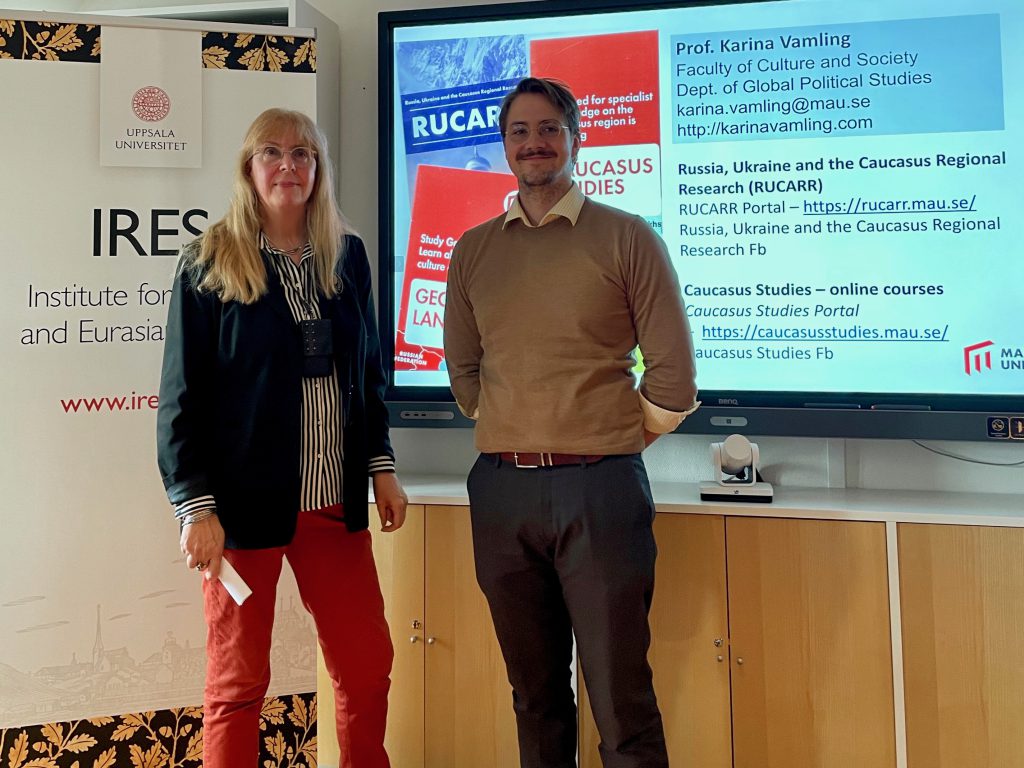 Prof. Karina Vamling presented RUCARR and Caucasus Studies to alumni and MA students at IRES Institute for Russian and Eurasian Studies at Uppsala University – by invitation from TSARES, The student association of Russian and Eurasian studies (here together with Fabian, vice chair of the association). Great initiative!
Prof. Karina Vamling presented RUCARR and Caucasus Studies to alumni and MA students at IRES Institute for Russian and Eurasian Studies at Uppsala University – by invitation from TSARES, The student association of Russian and Eurasian studies (here together with Fabian, vice chair of the association). Great initiative!


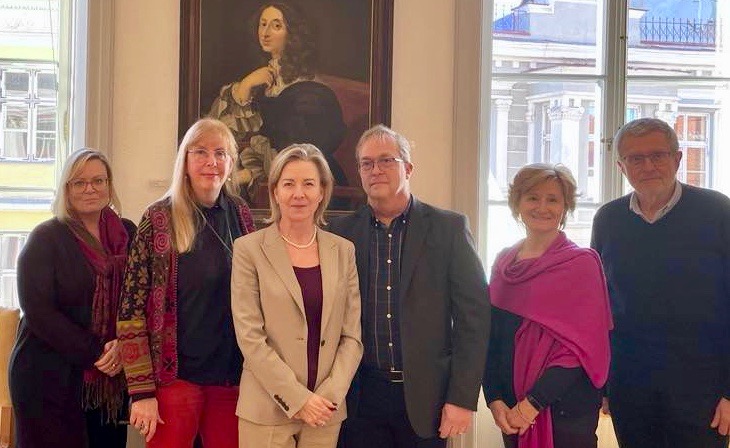

 Welcome to next RUCARR seminar on March 21 with Dr Katrine Godfredsen, senior lecturer in Caucasus Studies at Malmö Unversity.
Welcome to next RUCARR seminar on March 21 with Dr Katrine Godfredsen, senior lecturer in Caucasus Studies at Malmö Unversity. Varför utgör Navalnyj en sådan utmaning mot Putin och det etablissemang han leder?
Varför utgör Navalnyj en sådan utmaning mot Putin och det etablissemang han leder?

 Professor Bo Petersson, RUCARR Co-Director, has been invited to join the editorial board of Communist and Post-Communist Studies
Professor Bo Petersson, RUCARR Co-Director, has been invited to join the editorial board of Communist and Post-Communist Studies
